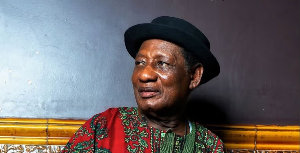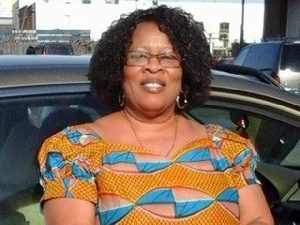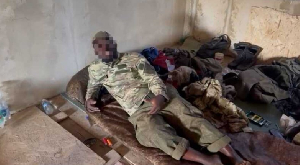It was the scenario that residents of Emerson, Man., had been fearing for months — that someone among the throngs who have been crossing the border illegally recently would wind up dead, either from the biting cold or from spring flooding.
For it to happen this late in the season, however, caught everyone off guard.
“We have a death in conditions we didn’t think were that serious. It’s a little bit unnerving,” said Greg Janzen, reeve of the small Manitoba border community.
“This is getting more disturbing all the time.”
On Wednesday, sheriff’s officials in Kittson County, Minn., on the other side of the border from Emerson, confirmed the death of Mavis Korkor Lamyoh Otuteye, 57, of Ghana.
Her body was found last Friday afternoon by border patrol agents less than a kilometre from the border, in a watery ditch in a rural farm field. It was believed she had died from hypothermia.
She had been reported missing the day before, officials said. It was not known if she had been travelling alone or in a group.
“It’s most likely that she was attempting to get to Canada,” Matt Vig, a sheriff’s spokesman, told local TV station WDAZ.
“The temperatures that night were in the 40s. It’s tough weather for her to make that journey.”
The station reported that Otuteye had lived in Delaware for several years and was attempting to reunite with her daughter.
Regina Otuteye, of North Carolina, told the Minneapolis Star Tribune she last spoke to her sister-in-law in March and had no clue she wanted to travel to Canada to see her child. An acquaintance of the family, who asked not to be identified, told the National Post the daughter lives in Toronto.
Maggie Yeboah, president of the Ghanaian Union of Manitoba, said she was shocked when she heard about the death.
“What in the world would push her to travel by herself in the middle of the night? Could there have been people with her?” she said.

Yeboah said the woman’s name suggested she hailed from the Ga tribe of Accra, Ghana’s capital. Her non-profit is trying to gather more information about Otuteye and is willing to offer any assistance to her family, if it’s needed, she said.
So far this year, Yeboah’s organization has provided support to at least 50 Ghanaians who have made the dangerous border crossing, often in the middle of the night, in order to claim asylum. Many of them are Muslim and facing persecution in their home country for their sexual orientation, she said.
Two of them lost their fingers after suffering severe frostbite. Six have since had their refugee claims accepted, she said.
It is not clear whether Otuteye’s intent was to claim asylum. But many asylum seekers have been bypassing official ports of entry because of the fear they will be turned away.
Canada is a signatory to the Safe Third Country Agreement, which allows border officers at official ports of entry to turn away asylum seekers who come via other “safe” countries, such as the U.S. The policy, however, does not apply to people who reach Canadian soil first.
From January through April, more than 2,700 asylum seekers were intercepted between ports of entry, according to the most recent federal data. Most of the cases occurred in Quebec, Manitoba and B.C.
In a statement Wednesday, the office of Public Safety Minister Ralph Goodale said last week’s death served as a reminder that attempting to cross the border in an irregular manner was “against the law and unsafe.”
“Irregularly crossing the border is not a free ticket to Canada. Anyone doing so will be arrested by the RCMP and brought to the nearest port of entry. Deportation procedures are commenced against those found not to be genuine refugees.”
Such messaging is not enough, Janzen said. He urged the federal government to consider withdrawing from the Safe Third Country Agreement so that asylum seekers wouldn’t have to risk their lives.
“We need some action now. We know that this isn’t going away,” he said.
General News of Thursday, 1 June 2017
Source: news.nationalpost.com
Ghanaian found dead near US-Canada border trying to reunite with daughter
Entertainment












